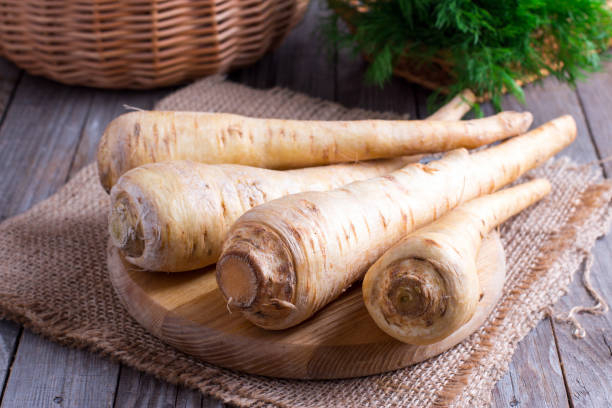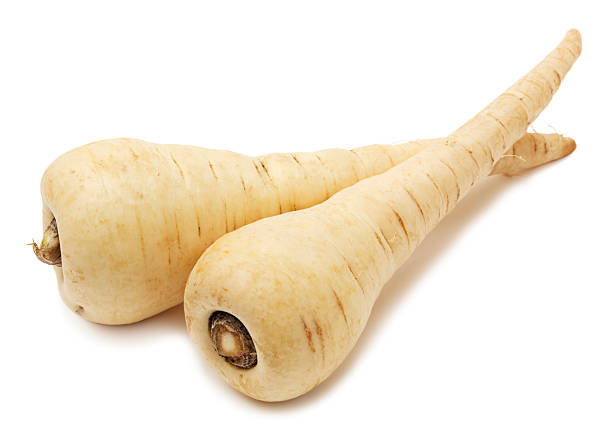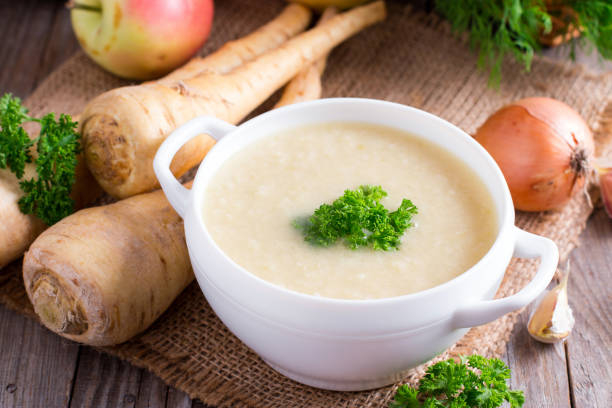Source: https://top-list.co/top-health-benefits-of-parsnips-v3010.html
1. Pack With Important Nutrients, 2. Rich in Antioxidants, 3. High in Soluble and Insoluble Fiber, 4. May Aid Weight Loss, 5. Support Immune Function. The cultivation and use of parsnips, a delectable variety of root vegetables, dates back thousands of years. Parsnips have long, cream-colored tuberous roots that are closely linked to other vegetables like carrots and parsley roots. They have a sweet, slightly nutty flavor. Parsnips provide a distinctive flavor to your food and are also highly nutrient-dense and thought to have a number of health advantages. The best health advantages of parsnips are listed below.
- Pack With Important Nutrients
- Rich in Antioxidants
- High in Soluble and Insoluble Fiber
- May Aid Weight Loss
- Support Immune Function
Pack With Important Nutrients
Each serving of parsnips has a substantial amount of fiber, vitamins, and minerals, making them a good source of many essential elements. Parsnips are an excellent source of several essential micronutrients, including folate, vitamin K, and C. One cup (133 grams) of parsnips provides the following:
- Calories: 100
- Carbs: 24 grams
- Fiber: 6.5 grams
- Protein: 1.5 grams
Fat: 0.5 grams - Vitamin C: 25% of the Reference Daily Intake (RDI)
- Vitamin K: 25% of the RDI
- Folate: 22% of the RDI
- Vitamin E: 13% of the RDI
- Magnesium: 10% of the RDI
- Thiamine: 10% of the RDI
- Phosphorus: 8% of the RDI
- Zinc: 7% of the RDI
- Vitamin B6: 7% of the RDI
In addition to the nutrients listed above, parsnips contain a small amount of calcium, iron, and riboflavin.
Packed With Important Nutrients
Rich in Antioxidants
Parsnips are very nutrient-dense and also a great source of antioxidants. Antioxidants are substances that promote good health by preventing oxidative stress and minimizing cell damage. Increasing your antioxidant consumption may also help you avoid developing chronic diseases including cancer, diabetes, and heart disease. Ascorbic acid (vitamin C), a water-soluble vitamin that is also a potent antioxidant, is particularly abundant in parsnips.
Additionally, it includes polyacetylenes, which some test-tube studies suggest may have anticancer characteristics. Vitamin C and polyacetylenes, two powerful antioxidants found in abundance in parsnips, may help to protect against oxidative stress and chronic diseases like cancer, diabetes, and heart disease.
Rich in Antioxidants
High in Soluble and Insoluble Fiber
Both soluble and insoluble fiber are abundant in parsnips. 6.5 grams of this nutrient, or 26% of your daily requirements, are found in one cup (133 grams). Fiber helps to get things flowing and improves digestive health because it passes through your gastrointestinal tract undigested. In fact, studies have shown that increasing your fiber intake can help alleviate gastrointestinal problems like gastroesophageal reflux disease, diverticulitis, hemorrhoids, and intestinal ulcers.
According to one study, ingesting fiber increased the frequency of stools in patients who were constipated, suggesting that it may also help with regularity. Additionally, studies have indicated that fiber helps with blood sugar regulation, lowers cholesterol levels, lowers blood pressure, and lowers inflammatory marker levels.
High in Soluble and Insoluble Fiber
May Aid Weight Loss
Parsnips are a great addition to a healthy weight reduction diet because they are low in calories and high in fiber. Your digestive tract processes fiber slowly, which helps you feel satisfied for a longer period of time and may help you eat less overall. One study found that increasing daily fiber consumption by 14 grams could reduce calorie intake by as much as 10%, resulting in weight loss of 4 pounds (1.9 kg) over the course of four months.
Only 100 calories and 6.5 grams of fiber are contained in one cup (133 grams) of parsnips. This root vegetable also contains a lot of water, 79.5% to be exact. According to studies, consuming more foods high in water may lead to fewer calories consumed and more weight loss.
May Aid Weight Loss
Support Immune Function
With only one serving, parsnips can meet around 25% of your daily vitamin C requirements. A water-soluble vitamin, vitamin C is essential for the health of the immune system. Getting enough vitamin C in your diet may help lessen symptoms and cut the length of the common cold and other respiratory tract infections, according to one research.
Other diseases including pneumonia, malaria, and diarrhea infections may also be prevented or treated with its help. Additionally, parsnips are rich in antioxidants that combat disease, including quercetin, kaempferol, and apigenin, which may boost immunity and shield against infection.
Support Immune Function










